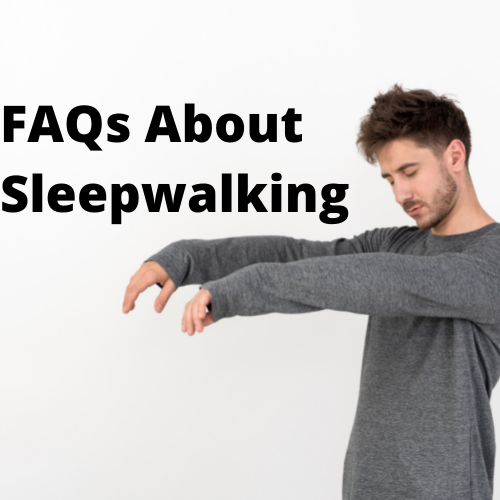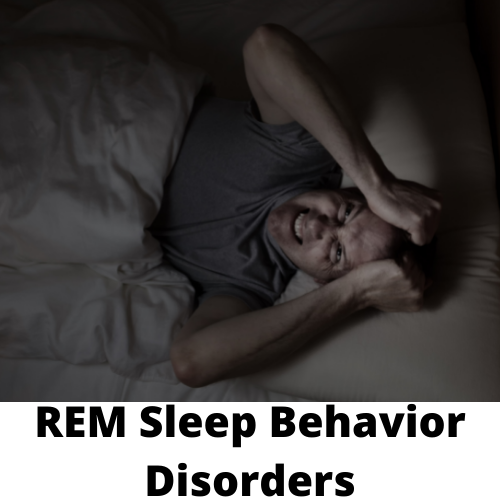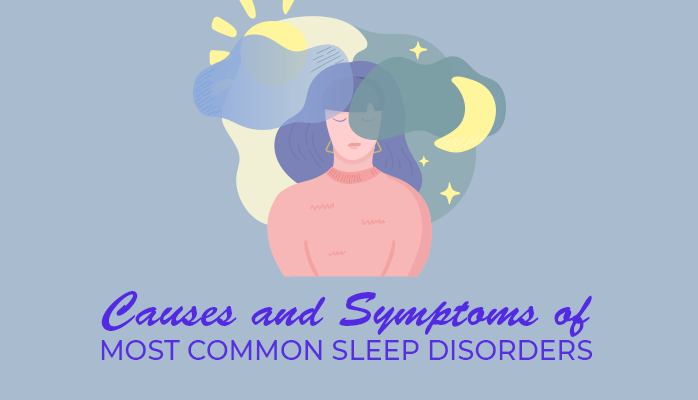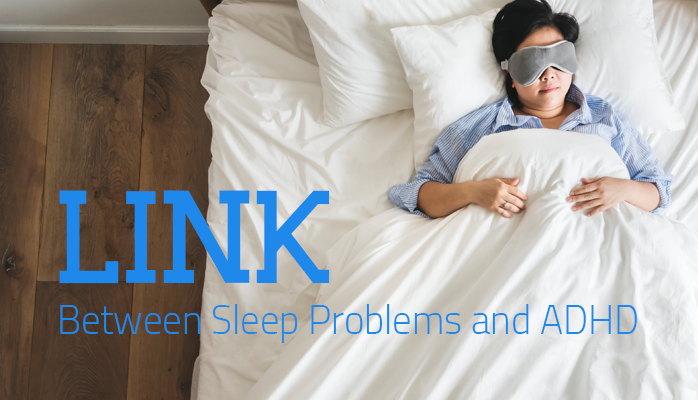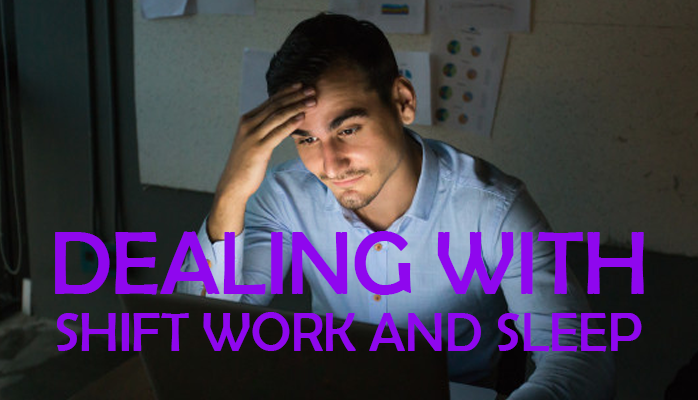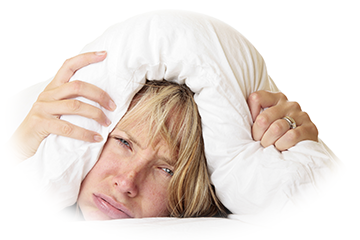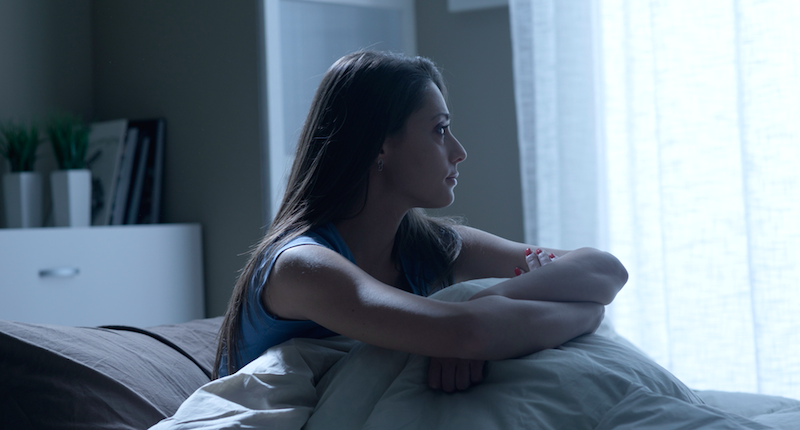Sleepwalking, also known as somnambulism, is a disorder where individuals get up while they are sleeping and walk around. It is very common in children and usually fades during the teen years. However, there are occasional cases that start in adult years or persist into adult years. If there are rare cases of sleepwalking, then those are generally of little concern; however, if there are common causes of sleepwalking, then that may need to be addressed. Continue reading for more information on sleepwalking and how to address it.
REM sleep behavior disorders are a series of activities that one does in their sleep, at a time when they would normally be temporarily paralyzed. One of the sleep stages that we enter every night is called REM, or rapid eye movement. It is the stage in which dreaming occurs. During this time, we are normally very still, with only our eyes moving about. However, during REM sleep behavior disorders, we may be acting out our dreams. Continue reading to find out more about this disorder.
Causes and Symptoms of the Most Common Sleep Disorders
Sleep disorders are fairly common, some more than other. The thing they all have in common, however, is their ability to disrupt sleep. Chronic sleep disruptions can make you feel less like yourself. Sometimes, theys can even make you feel and behave like a completely different person.
If you are reading this, you might be wondering if you have a sleep disorder or problem. Here are causes and symptoms of the most common sleep disorders.
Overlap Between ADHD Symptoms and Sleep Deprivation Symptoms
Attention Deficit Hyperactivity Disorder (ADHD) symptoms and symptoms of sleep deprivation tend to overlap. An interesting question to consider is can sleep problems result in ADHD? If the answer is yes, there may be treatments available for some people with ADHD that are non-pharmacological.
Right now, there is no answer to this question. It is something that researchers, such as professor Sandra Kooij (Associate Professor of Psychiatry at VU University Medical Center, Amsterdam, and founder and chair of the European Network Adult ADHD), are only just beginning to tackle.
Consider for a moment though, some of the most common symptoms of sleep deprivation [Brandon Peters, MD] that are also symptomatic of ADHD [WebMD]:
- Difficulty remaining attentive
- Lack of focus
- Impulsiveness
- Forgetfulness
- Impaired performance on common activities
- Poor prioritization/planning
- Disrupted sleep cycle
If you or your child struggle with ADHD you might also check in and see how your sleep is too.
Shift Work and Sleep
A shift worker is anyone whose work schedule does not follow the typical 9-5 business day. The most typical example of this are businesses that operate 24 hours per day. This is increasingly common as modern demands and competition push businesses production and customer service. Millions of Americans are working non-traditional hours (about one-fifth of the US population [1]) – are you?
The most common risk of shift work are persistent sleep problems, generally resulting in either excessive sleepiness and/or nighttime sleep interruptions [2]. Only 63% of shift workers report that their work schedule allows them to get enough sleep (compared to 89% for non-shift workers) [3]. If you are a shift worker, are you getting enough sleep?
Most people don’t get enough sleep. We are a society that burns the candle at both ends, a nation where people stay up all night to study, work, or have fun. However, going without adequate sleep carries with it both short- and long-term consequences.
Everyone knows that lack of sleep can make a person grumpy and foggy. However, not everyone knows that sleep deprivation can significantly affect your health, safety, and performance.
These are the top seven dangers of sleep deprivation:
Do you wake up earlier than you’d like or have trouble falling asleep and staying asleep? Are you excessively tired throughout the day and/or having difficulty concentrating at work or school? Do you rely heavily on caffeine to keep you awake? Does the sleep you do get feel restorative, or does it feel inadequate? If you said “yes” to any of these questions, there is a chance that you suffer from a sleep disorder.
If a sleep disorder is suspected, there will likely come a time when you will have a sleep study performed to get to the root of your sleep problems. Talking to your doctor, or one of the sleep specialists at the Anchorage Sleep Center, about your sleeping challenges is the first step in getting a sleep study performed and discovering what exactly is disturbing your slumber. Your doctor will likely have you keep a sleep diary for at least two or three weeks. This will help them better understand your symptoms and help them with their diagnosis. It wouldn’t hurt, however, to start a sleep diary as soon as you recognize that there is a problem with your sleep. Good documentation will help accelerate the process leading up to diagnosis and treatment.
It’s not surprising that the week of Thanksgiving was chosen as GERD awareness week, especially with our tendency to indulge in a little too much of everything! GERD. or gastroesophageal reflux disease, is a common disease that affects millions of Americans.
Can't Sleep? What You Need to Know About Insomnia
Insomnia is a sleeping disorder that prevents you from falling asleep, staying asleep, and waking up at an appropriate time. This can be due an underlying cause or seem idiopathic. If you struggle with sleep and are concerned you're the only one, it may help to know that you're not alone in your quest for better sleep. Research studies demonstrate that approximately 25% of people suffer from some form of sleep disorder. This statistic is daunting as sleep deprivation can impose detrimental effects on individuals and the people around them.
Inflammatory bowel disease (IBD) is a waxing and waning disease characterized by diarrhea, abdominal pain, and weight loss. IBD, which includes Crohn’s disease and ulcerative colitis, affects as many as 1.6 million Americans, most of whom are diagnosed before age 30. Since there is no cure for these diseases, patients are relieved when they enter remission.

